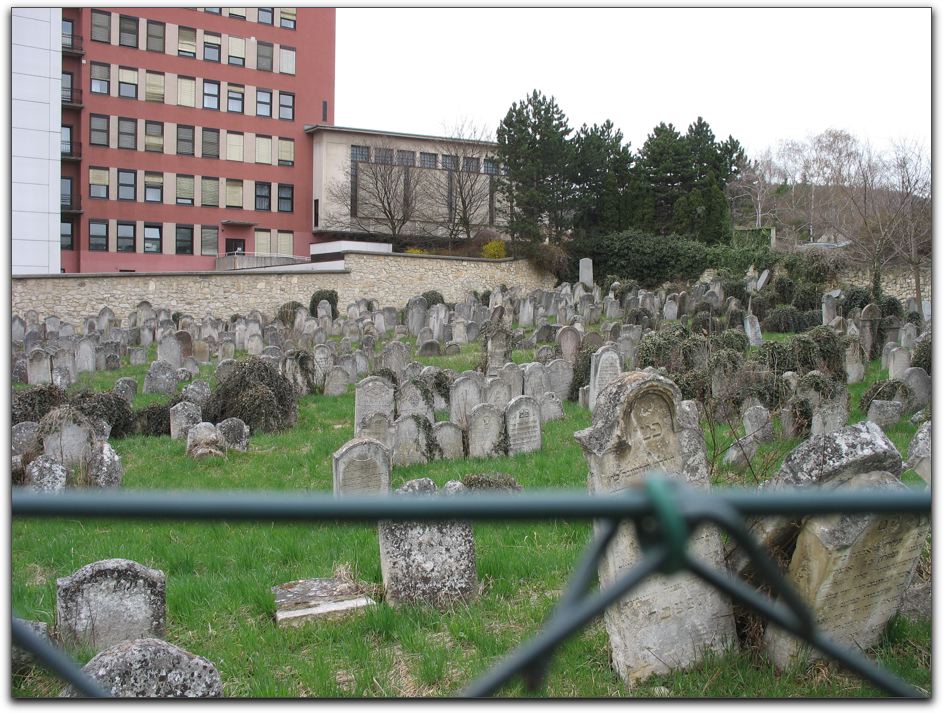
Because of its mention in a couple of our sources (in Vienna Revisited by Freda Ulman Teitelbaum and in an article about Vienna in Hadassah Magazine), we made a stop in Eisenstadt on the way in to Vienna. We were surprised that, Eisenstadt, in the Hungarian part of the empire, Burgenland (where Haydn had written his symphonies for Esterhazy), had been 20% Jewish before the war. There was no evidence of that life there now.
We found the fenced-off Jewish cemetery

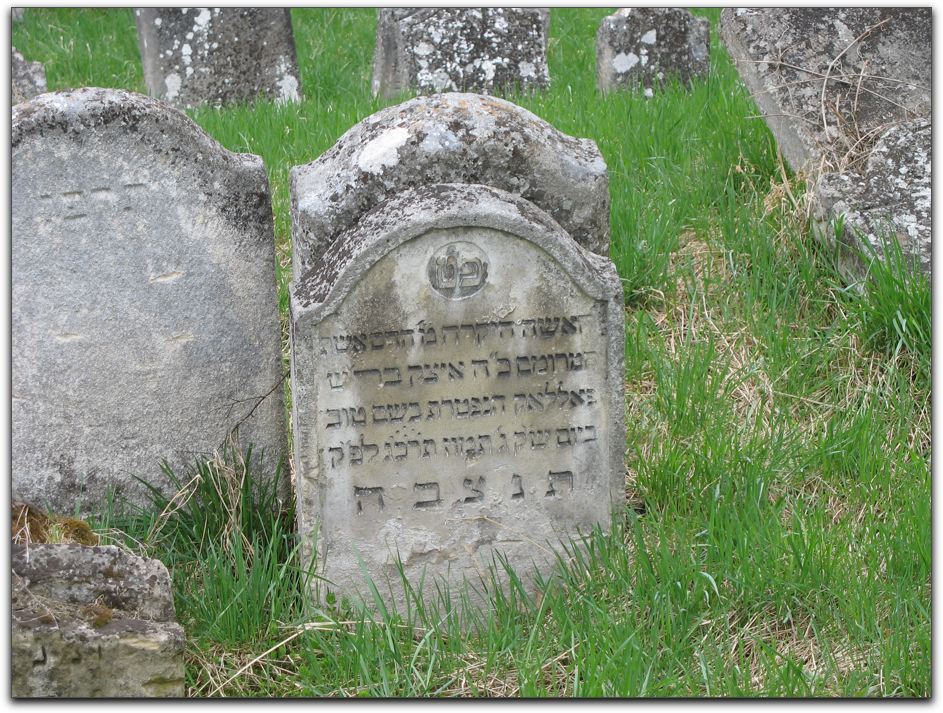
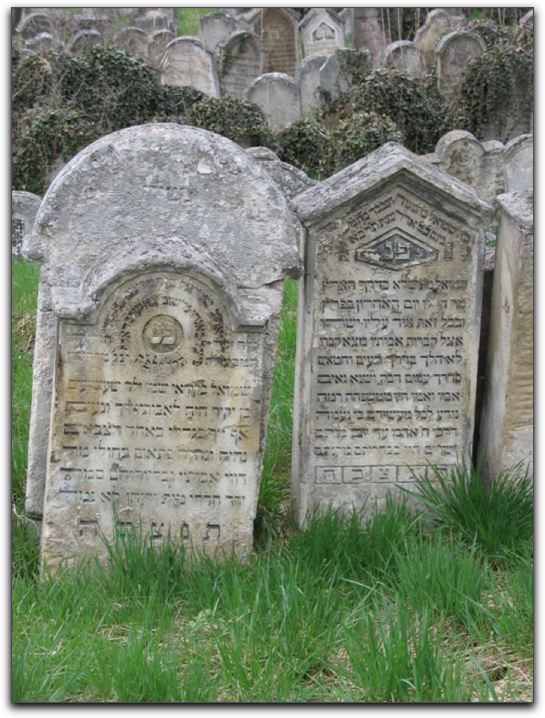
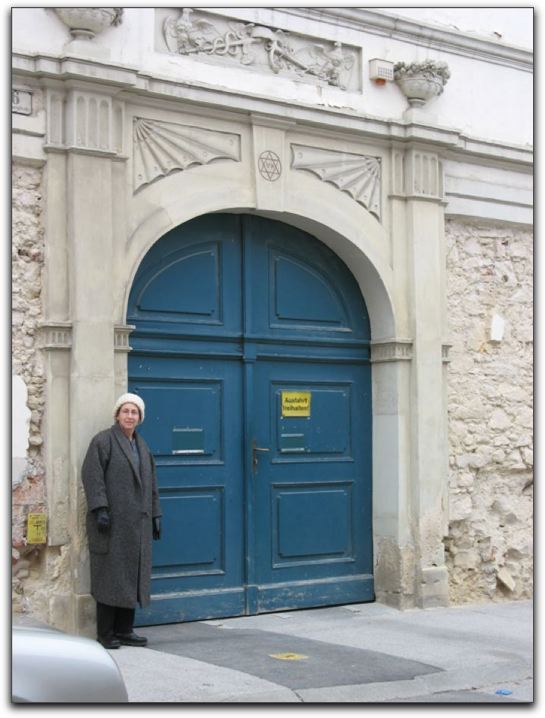
(across the street from the building that had been the local synagogue (but destroyed on Kristallnacht)):
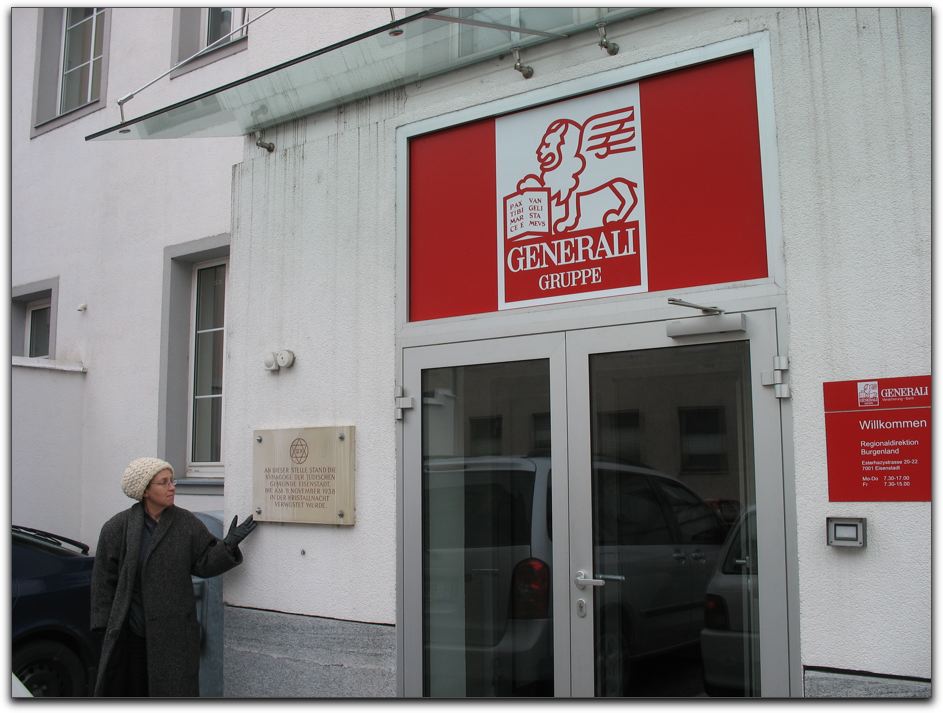
opens only May to October.
It may indeed be the Austrian Jewish museum. We kept going in circles to find it (it was so poorly marked).
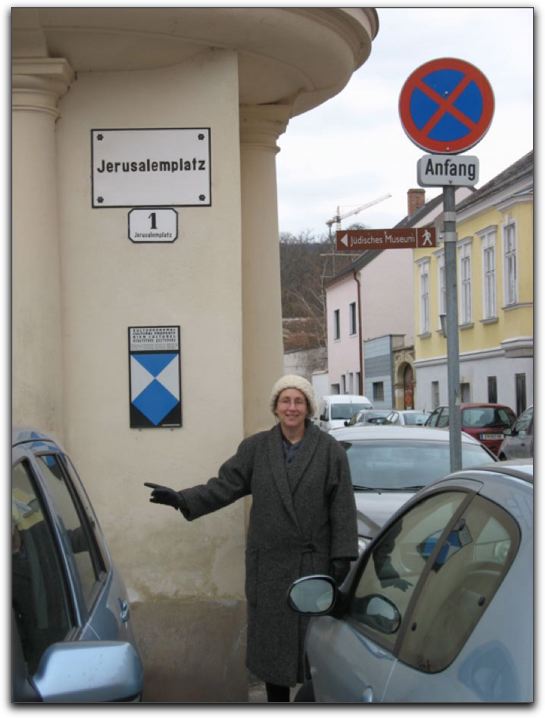
Despite the names Jerusalem/Judenplatz, and the presence of the museum, Eisenstadt is now empty of Jews except for (we were told) one Jewish man.
Perhaps it is an irony, but the musical city of Eisenstadt, which, while it has only one living Jew today, had the presence of the music of another Jew (at least temporarily) as well. In his day, his music was considered degenerate by those who eliminated 20% of the population. But, a performance of his work was scheduled for shortly after our visit.
Kurt Weill and Bertholt Brecht's Threepenny Opera:
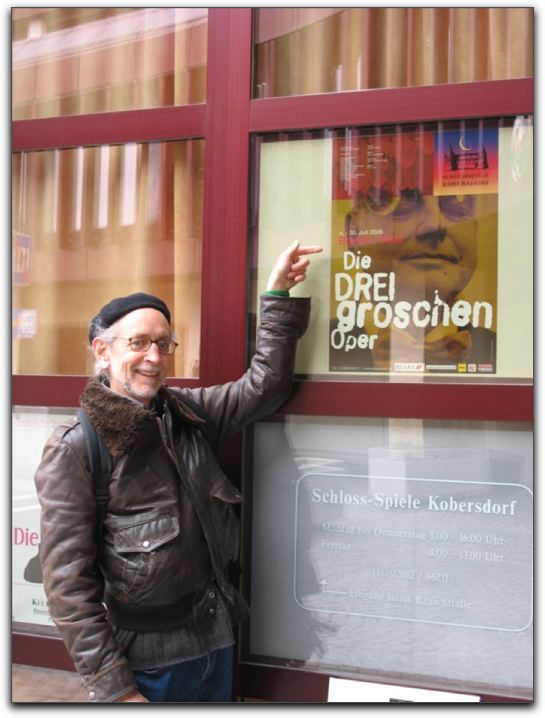
We stopped into a coffee shop for a short time. Debbie asked about local chocolates. We were told about something called the "Haydn Roll" which we tasted. It was an overwhelmingly honey-tasting dense item, and the first (though not the last) sweet we've tasted that we didn't like."
I read Vienna Revisited, a vanity publication Mark had found at my parents house and taken to ours. He reminded me of it just before we left. Her story probably parallels my families' stories in many respects. It's a good reminder of how much Austrian anti-Semitism existed and may yet. When she spoke German in Vienna and they inquired how she came to speak so well, she found that Austrians really did not pursue conversation with her when she mentioned she had grown up in Austria and left in 1938. She wrote about her trip to Vienna as a mature adult: "What had I really accomplished with this odyssey to the place of my birth? I had come with fears, had confronted them and perhaps even laid the ghosts to rest. But the pain still lingered; perhaps it always will. I found that progress had taken its toll here like everywhere else, but one thing had not changed. A gut feeling persisted, reminding me that anti-Semitism was alive and well in Austria, though covered with a veneer of politeness. And there was the people's general unwillingness to confront and face up to their complicity in the unsavory Hitler years. It was always the same. At first, admiring glances directed at my blond, blue eyed daughter, compliments on my German and then, when I mentioned the time frame of my departure from Vienna..." an end to the conversation...